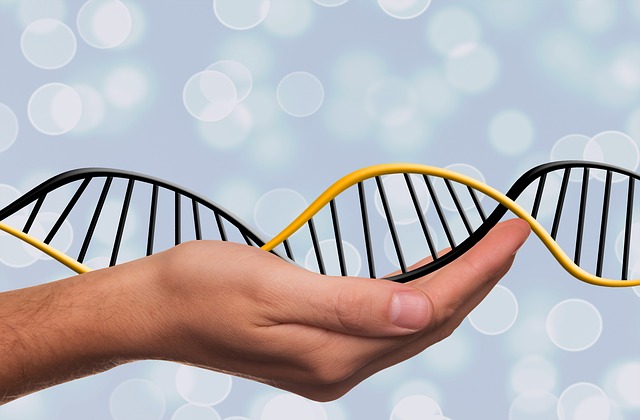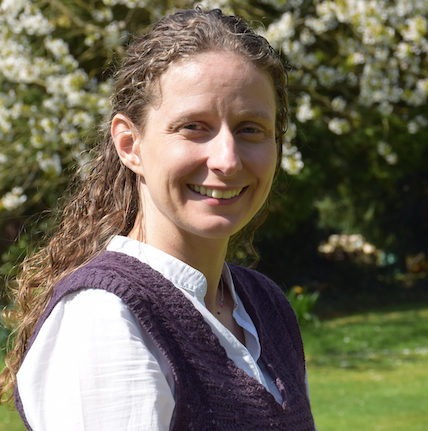
Pixabay. CC0 Public Domain
There is a basic trajectory for a science PhD student, and it goes something like this. Enthusiasm and delight mingled with a frisson of fear, a gradual onset of hard reality and stress, perhaps a dash of boredom and possibly even some despair and disillusionment. This is followed by a long period of determination and hard work, which ends in joy and relief. This is the crucible in which characters are formed, careers are established, and skills are developed which will last a lifetime. Some of the skills learned are very useful: experimental techniques, ways of thinking, organisational and project management skills, and of course knowledge. The less useful ones might include procrastination techniques, ways of bluffing, online gaming and social media skills, and of course surviving for whole days on the contents of the department vending machines.
Joking aside, I know that I am very different after doing a PhD. Having glided through my education with reasonable ease until that point, I finally hit a wall and wondered if I could complete my research project. I was forced to rely on God in a way that I had never had to until then. I had to give him my fears and insecurities and learn to find my confidence in who he made me as a person, rather than my ambitions (and that process is still ongoing!). I had to learn to trust him more, lean a little harder on my friends for support, be honest about my struggles, and keep going when I felt like taking a long vacation. Overall, I found my faith helped me through this time. I came out of my studies with a stronger conviction that God existed and was able to help me work hard for him.
There was also plenty to enjoy in my studies. When things were going well, there was the sense of togetherness that comes from sharing lab space with a diverse group, the fun of hanging out with creative people, and the opportunity to explore my own ideas in my research. I learned how community is created, to give as well as receive from my colleagues, that regular celebrations are a vital part of life, and how to respect my senior colleagues without taking them too seriously. These experiences also helped my faith and character to grow, led me to flourish in my work, and fed into my contribution as a member of a church.
Now that I am out of the lab and working full time in science and religion, I have the luxury of thinking about these experiences in more depth. One of my recent projects involved looking at how science feeds into faith in a positive way. As well as general growth in skills and knowledge, faith, character and community, five specific areas emerged time and time again in my conversations with working scientists. These were creativity, imagination, beauty, wonder, and awe. Some of these experiences are perhaps more obviously part of science than others, but all five are important to scientists so I will spend time on each one in turn.
Only those of us inside the lab (or field) get to fully understand the creativity involved in our research. To do well we need to have original ideas, be resourceful, solve problems and constantly find new ways of looking at our data and linking it with what is already known. Without creativity, science at any meaningful level would grind to a halt. As a Christian, I believe our creativity is a reflection of God’s creativity. He created us, slowly and painstakingly, and we reflect something of the Creator’s character. We cannot create from nothing, but we can be inspired by the things we see around us, making connections between them, and exploring the world in completely new ways. I find it is essential to use my creativity as regularly as possible, or something inside me dries up.
Imagination is an essential tool for creativity. We sort and sift our knowledge, run scenarios, and think into the future. We flip seamlessly between the material world and an imaginary world of thoughts and memories. We test ideas against reality, discarding unrealistic ideas, and rejecting scenarios that won’t work. In the end, we formulate ways of making sense of the world that take into account as much of the data as possible. This process is similar for both science and faith. Both involve integrating evidence and experience to come up with a model of how the world works, though at different levels: one close up and detailed, and one broad and all encompassing. Training in science can help us to use our imaginations more fruitfully, testing our ideas against reality – so long as we don’t lose sight of the fact that that Christian faith is much broader than scientific data. We must learn to look beyond our chosen academic field into metaphysics, relationships, scripture, spiritual experience, and more.
Scientists also get to see the very stuff of creation and share in the joy of the Creator as we uncover things no other person on earth has seen before. We all find certain things in our work beautiful, and some of them are even beautiful to other people. There are great beauties of form and colour, organisation and regular patterns, or even elegant simplicity in our equations. Some people appreciate particular techniques, organisms, or ways of presenting data. For CS Lewis, beauty was a reminder of the source of all beauty that can be found in God.
Wonder is an essential attribute for a scientist. We are the ones who never stopped asking questions about what things are and how they work. Without wonder we would struggle to get ourselves to work, keep on at difficult problems, or scrutinise our data in enough depth. Wonder is a also small part of the much bigger experience of awe, which comes along once in a while. Finally the experiment is working, answers are coming, and new surprises are just around the corner. Fresh questions pop up, but also a sense that something tremendously significant is happening – you are receiving the gift of an insight into the very structure of the world. This moment may feel like a reward for a long period of hard work, as if you reached the top of a mountain and can spend time resting and surveying the view before you head off to the next peak. These are the times when we sometimes use more spiritual-sounding language, as if more scientific words are inadequate to describe the experience. For the Christian, an experience of awe can lead directly into worship.
Finally, the very discoveries of science can also feed into faith in some way. The model I use to shape my thinking in this area comes from the British theologian Alister McGrath. He likes to think of theology as a lens which is used to look out at the world. When that lens is used, do things come into sharper focus? Do they make sense? For example, the physical properties of the universe seem finely tuned to allow life to develop. Would that idea make sense if a God existed who desired to create life? I think so! What about the repeated evolution of useful structures like eyes and wings? Or the importance of cooperation in the living world? What overarching worldview makes sense of these data? One must be very careful not to prop up faith with scientific arguments, but looking at it the other way – as a thought experiment – can be a useful exercise.
So there is much in science that can feed into our faith in a positive way, as is the case in every profession. The question is, how can we make the most of these opportunities to grow as individuals? How can we allow them to feed into our extended communities? Some of these experiences are unique to science, so maybe we should be sharing those with our churches? In the lab environment, these things can spark conversations or shape us in ways that may be unique to a Christian. So how can we discuss the relationship between science and faith in an interesting, relevant and helpful way?
Reposted with permission from the Emerging Scholars Network.

Ruth Bancewicz, © Nigel Bovey
Ruth Bancewicz is a Senior Research Associate at The Faraday Institute for Science and Religion, where she works on the positive interaction between science and faith. After studying Genetics at Aberdeen University, she completed a PhD at Edinburgh University. She spent two years as a part-time postdoctoral researcher at the Wellcome Trust Centre for Cell Biology at Edinburgh University, while also working as the Development Officer for Christians in Science. Ruth arrived at The Faraday Institute in 2006, and is currently a trustee of Christians in Science.




